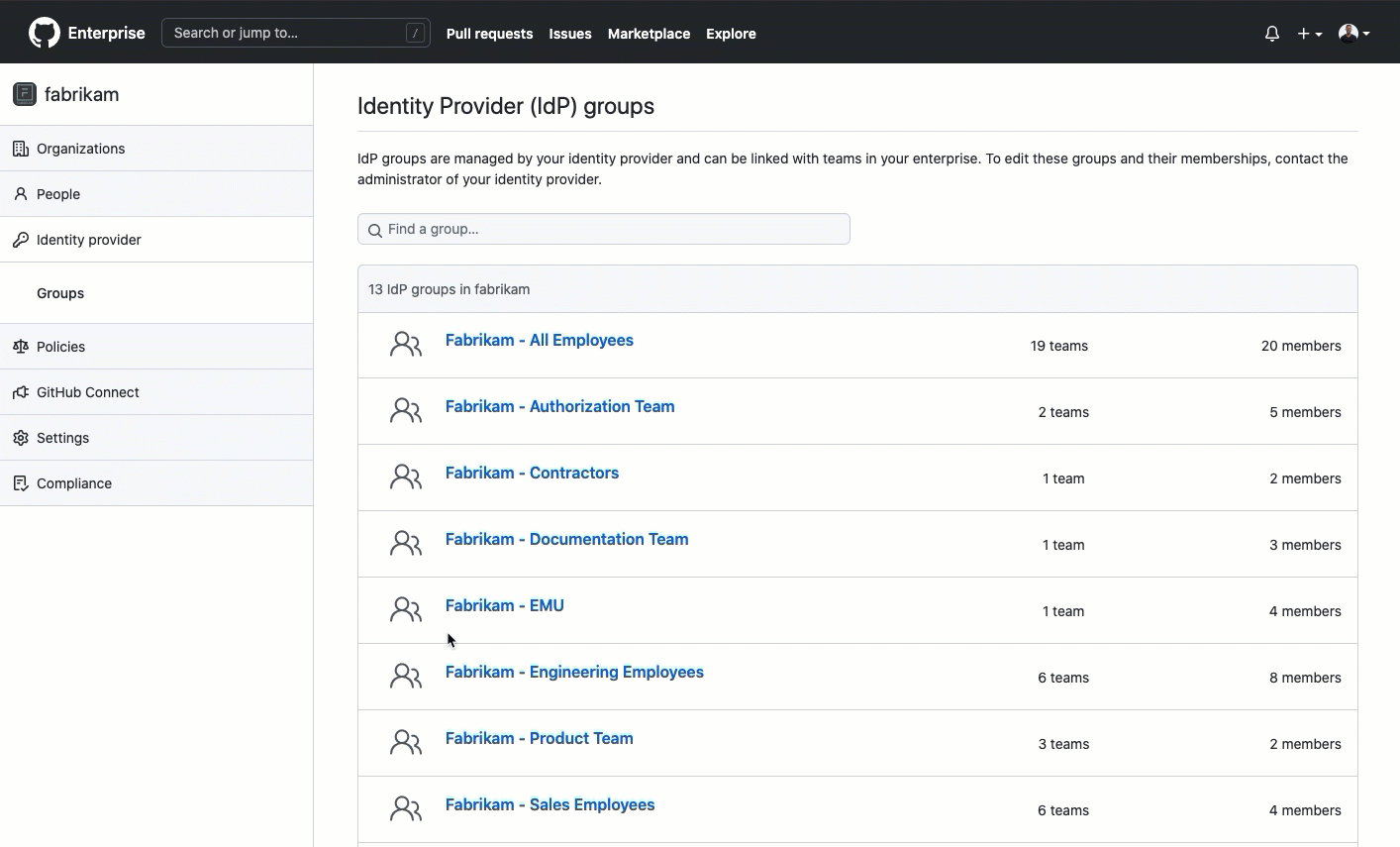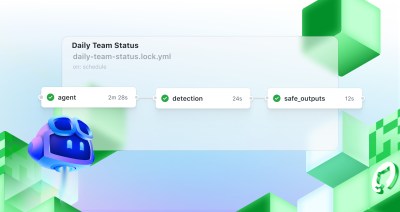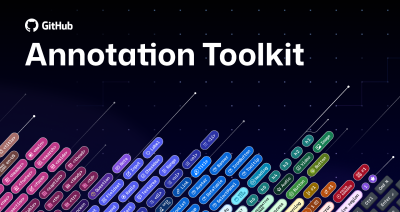Enterprise managed users are now generally available for GitHub Enterprise Cloud
Manage your company in the cloud with more control and governance using enterprise managed users.

The future of software development is in the cloud. At GitHub, we are focusing on making the transition to cloud an easy path for companies of all sizes. Today, we’re pleased to announce that enterprise managed users (EMU), which allows for centralized user account administration, is generally available for customers using GitHub Enterprise Cloud (GHEC). For regular users of GitHub, nothing changes. Your GitHub identity is and always will be your public identity. For companies using GHEC, EMU gives the scalability and reliability of GHEC while also providing them with the administrative tools they need to manage their users and code in the cloud.
Centralized user and group management

If you’re a systems administrator, you likely use an identity provider (IdP) both to manage the digital identities of your employees and to assign them access to the resources they need to work effectively. IdPs also help streamline the onboarding process for new employees by automatically creating user accounts in web applications. Using EMU, you are now able to connect your IdP with GitHub to automate the creation, update, and suspension of the GitHub user accounts within your enterprise using the same workflow you already have in place for other software platforms. Additionally, you can connect security groups in your IdP to GitHub teams—allowing you to centralize and streamline both user and group management.
Create and manage GitHub user accounts for work
Companies love the collaboration capabilities of GitHub Enterprise, but have asked for more administrative controls regarding their employees’ user accounts. Using EMU, you can create user accounts for your employees and have additional audit capability over those accounts including user login events. Building on the auditing capability provided to all GHEC customers, enterprise owners are able to view, export, or stream the audit log events of every user in their enterprise.
EMU user accounts are standardized and synchronized with each user’s corporate identity in the IdP. This means that GitHub usernames, emails, and display names are defined directly in your company’s IdP, making it easy for users to tell with whom they’re collaborating, even if they’ve never met face-to-face.
Keep private code private
Mistakes happen, and those resulting in accidental exposure of intellectual property can be some of the most costly. That is why repositories in EMU enterprise accounts can never be made public, adding an additional layer of protection when managing your enterprise’s code in the cloud.
Try it out today
As mentioned earlier, for regular users of GitHub nothing changes. For enterprises wanting to take advantage of GHEC, EMU is now available today for both AzureAD and Okta IdPs. Learn more and reach out to your GitHub account manager today if you are interested in adopting EMU.
Tags:
Written by
Related posts

Automate repository tasks with GitHub Agentic Workflows
Discover GitHub Agentic Workflows, now in technical preview. Build automations using coding agents in GitHub Actions to handle triage, documentation, code quality, and more.

Level up design-to-code collaboration with GitHub’s open source Annotation Toolkit
Prevent accessibility issues before they reach production. The Annotation Toolkit brings clarity, compliance, and collaboration directly into your Figma workflow.

How to use the GitHub and JFrog integration for secure, traceable builds from commit to production
Connect commits to artifacts without switching tools.